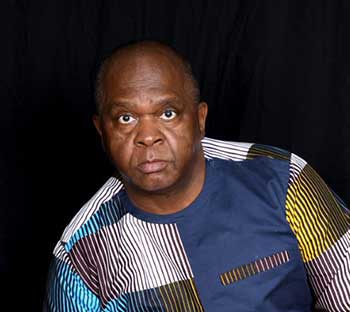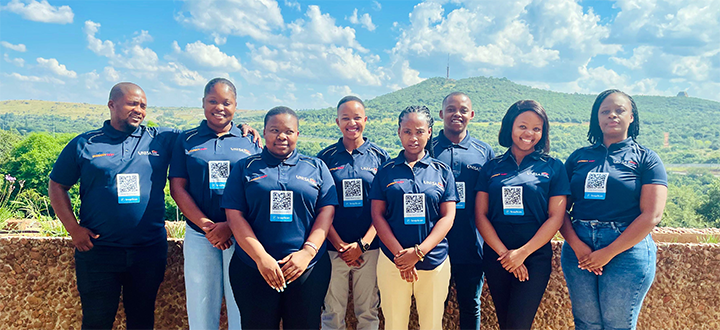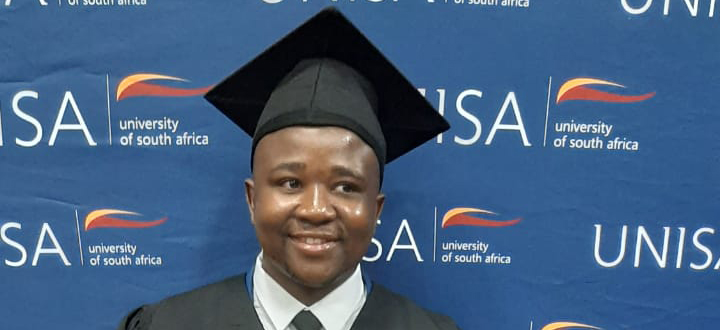Department of Science and Technology Education
Proudly Africanizing our curriculum

Prof Mishack Gumbo, C1 NRF rating scholar, in the Department of Science and Technology Education specialising in Indigenous Technological Knowledge Systems Education
I was recently appointed as Editor-in-Chief (EIC) for Indilinga: African Journal of Indigenous Knowledge Systems (IAJIKS) starting on the 1st of July 2021. I thank the Advisory Board for the journal for honouring my expertise with this appointment. I also thank the previous EIC, Prof Queeneth Mkabela, for her committed editorship over the years. Indilinga is an accredited journal by Department of Higher Education and Training. The appointment came with a lot of excitement, more especially because the journal perfectly falls in line with my specialisation field, i.e. indigenisation/Africanisation/decolonization especially of Technology Education curriculum and postgraduate programme and supervision.
Prior to this appointment, I was EIC for Action Learning and Action Research Journal (ALARj), which also supports my action research orientation. I had to step down as EIC for ALARj as I could not be EIC for two journals at the same time. My latest appointment will help me to add value to IAJIKS as well as it will add value to my field.
My engagement with the wealth of knowledge in the submitted articles to the journal deepen my knowledge in in the field and help inject new ideas in my research. I believe that my editorship experience and research expertise will benefit further promote IAJIKS. It is important to note that IAJIKS is a critical knowledge and research dissemination about IKS locally and internationally. It is also a source that adds value to our heritage as Africans and research conducted about indigenous people’s philosophies and epistemologies from various contexts.
As for my prospects, I don’t think we have arrived yet as UNISA or other institutions of higher learning, in terms of indigenizing/decolonizing/Africanising the curriculum. The question that each academic is faced with is: “How to I transform practice and research by centring them on IKS?”. I have conceptualised indigenisation of a Mathematics, Science and Technology Education (MSTE) Master’s Programme, collaborative project between UNISA and two other universities in the SADC which will be conducted in the next three years. The outcomes of the project will include, among others a common Indigenous MSTE Master’s Programme, co-supervision of students enrolled in the programme by supervisors from the three universities, co-publication of manuscripts.
I am currently applying for Research Professoriate which, if I get it, will benefit me in terms of my leadership and activities of the project. I am also leading an Intervention in MST Engaged Scholarship project which is a collaboration between Department of Science and Technology Education and the MST Agency in the Mpumalanga. The project mainly focuses on the MST teachers’ professional development targeting their pedagogical content knowledge. Part of the role of my team is to guide the facilitators to teach from an indigenous point of view. Mpumalanga is predominantly rural rich with IKS, although this does not mean that IKS is non-existent in urban areas, only that it is more evident in rural areas. It is therefore important that teaching and learning supports the contextual realities, knowledge, methods, practices, etc which relate to ethno-MST. The intention should be to produce future mathematicians, scientists and technologists who will proudly contribute indigenous knowledge and practices both locally and internationally. Lastly, I am also aiming for my NFR rerating six years from now. My current and planned projects greatly help me in that regard.
#Moleboheng Ramulumo
Publish date: 2021/10/12

 Accounting pundit appointed to lead Unisa's College of Accounting Sciences
Accounting pundit appointed to lead Unisa's College of Accounting Sciences
 World Social Work Day: A shared future for transformative change
World Social Work Day: A shared future for transformative change
 Unisa partners with Palabora Mining Company to create research-based solutions
Unisa partners with Palabora Mining Company to create research-based solutions
 Unisa’s student leadership takes debt bull by the horns
Unisa’s student leadership takes debt bull by the horns
 From medical scrubs to legal robe
From medical scrubs to legal robe